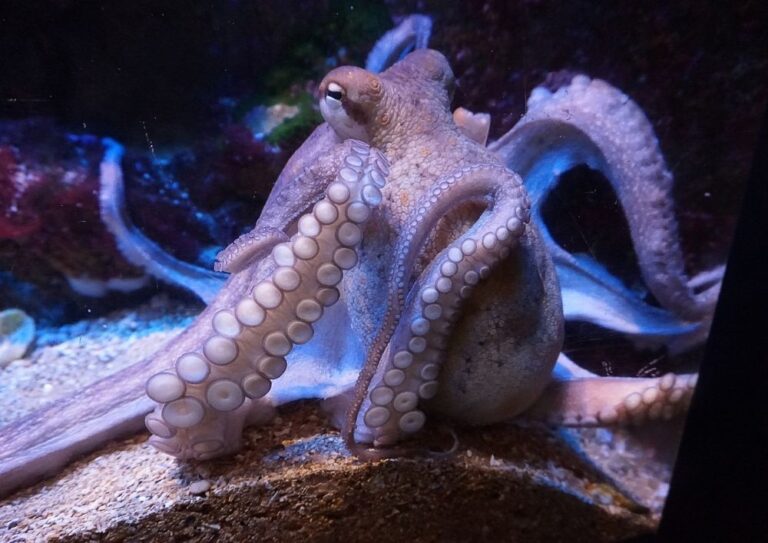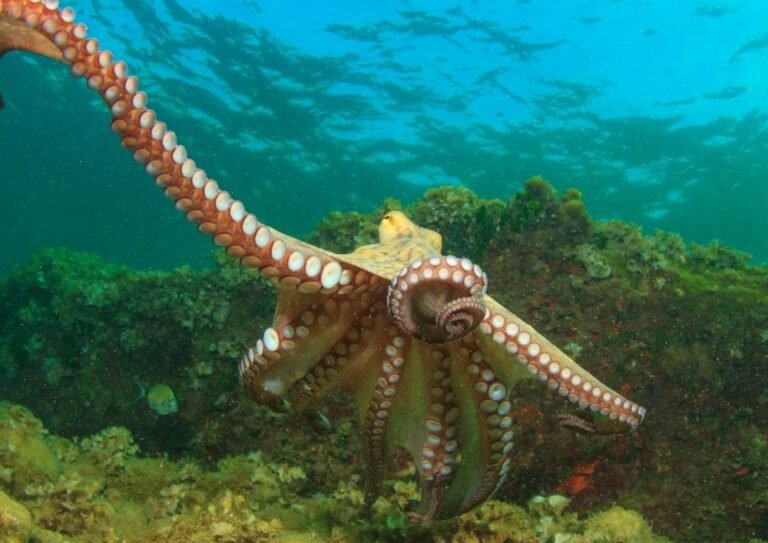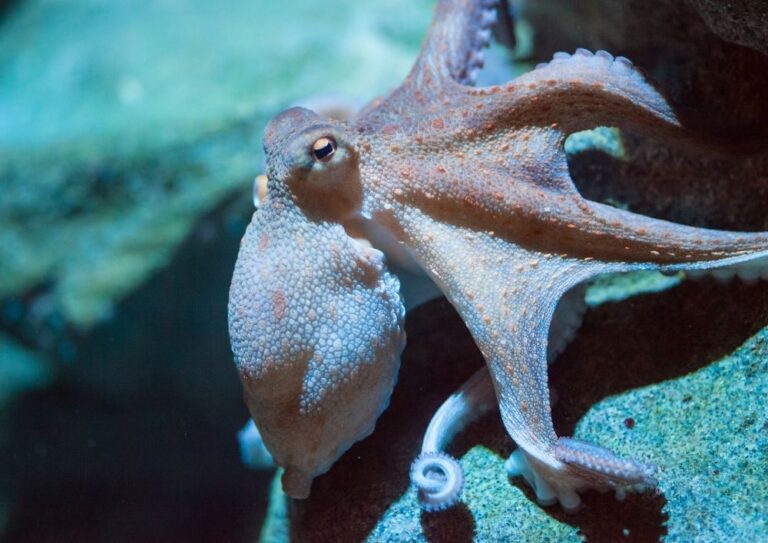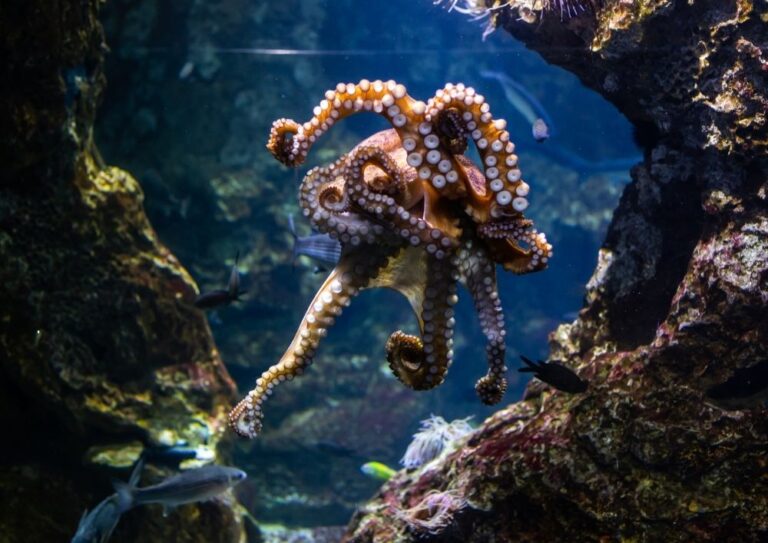The very first intensive cephalopod farms are being developed around the world.
Hundreds of thousands of octopuses or squids will be raised and slaughtered for human consumption in conditions that seriously threaten their well-being.
And yet, these animals are highly intelligent and capable of experiencing pain and suffering.
Sign the petition tabled in the House of Commons to ban the import of octopuses (and other cephalopods) from mega-farms into Canada and thus spare them captivity and suffering.
Say no to importing farmed octopuses from industrial mega-farms into Canada.
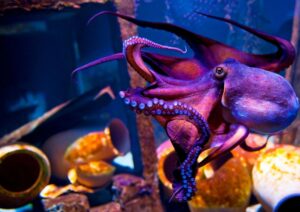
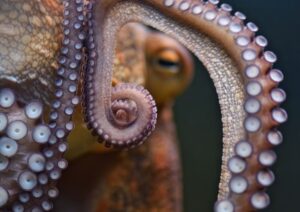
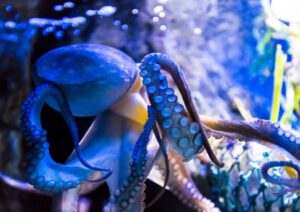
Octopuses: Surprising Creatures
Act now to prevent hundreds of thousands of marine animals from being held captive and suffering in silence.
Did you know?
The “marshmallow test” is designed to determine whether an individual is capable of exercising enough self-control to turn down an instant reward for an even better one later.
Cuttlefish show amazing cognitive abilities! They passed the marshmallow test originally designed for human children with flying colours. This test requires a complex cognitive process that involves evaluating two options and choosing the one that will provide the best payoff in the future.4
Knowing how to handle tools is evidence of an individual’s learning abilities. Octopuses can build dens to hide in and use rocks to block off the entrance. These dens are sometimes interconnected to form underwater cities. Some octopuses also collect objects they might be able to use later.
When they feel threatened or crowded by other individuals, octopuses often throw objects at them. A recent study has shown that female octopuses use this tactic to defend themselves when bothered by males.5
Octopuses and Suffering
Beyond intelligence, it is their capacity to suffer that constitutes a crucial criterion in determining the need to grant them protection, whether it is their capacity to feel physical pain or experience stress or emotional, psychological or relational suffering.
Although cephalopods (the group of invertebrates to which octopuses belong) have a nervous system that significantly differs from that of vertebrates, recent studies show that octopuses feel and respond to pain similarly to mammals.
Their experience of pain goes beyond the simple reflex of avoiding unpleasant stimuli, for example. It is rather a complex emotional experience that can lead to distress and suffering.9
In 2021, a detailed scientific report10 on cephalopods’ neurocognitive abilities led the United Kingdom to include them under the protections of the Animal Welfare (Sentience) Act11, which formally recognizes their sentience and the need to protect them.
And yet there is currently no legislation protecting farmed cephalopods’ well-being in jurisdictions where octopus farming is being developed and may become a reality.
